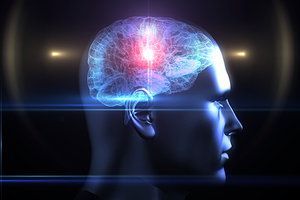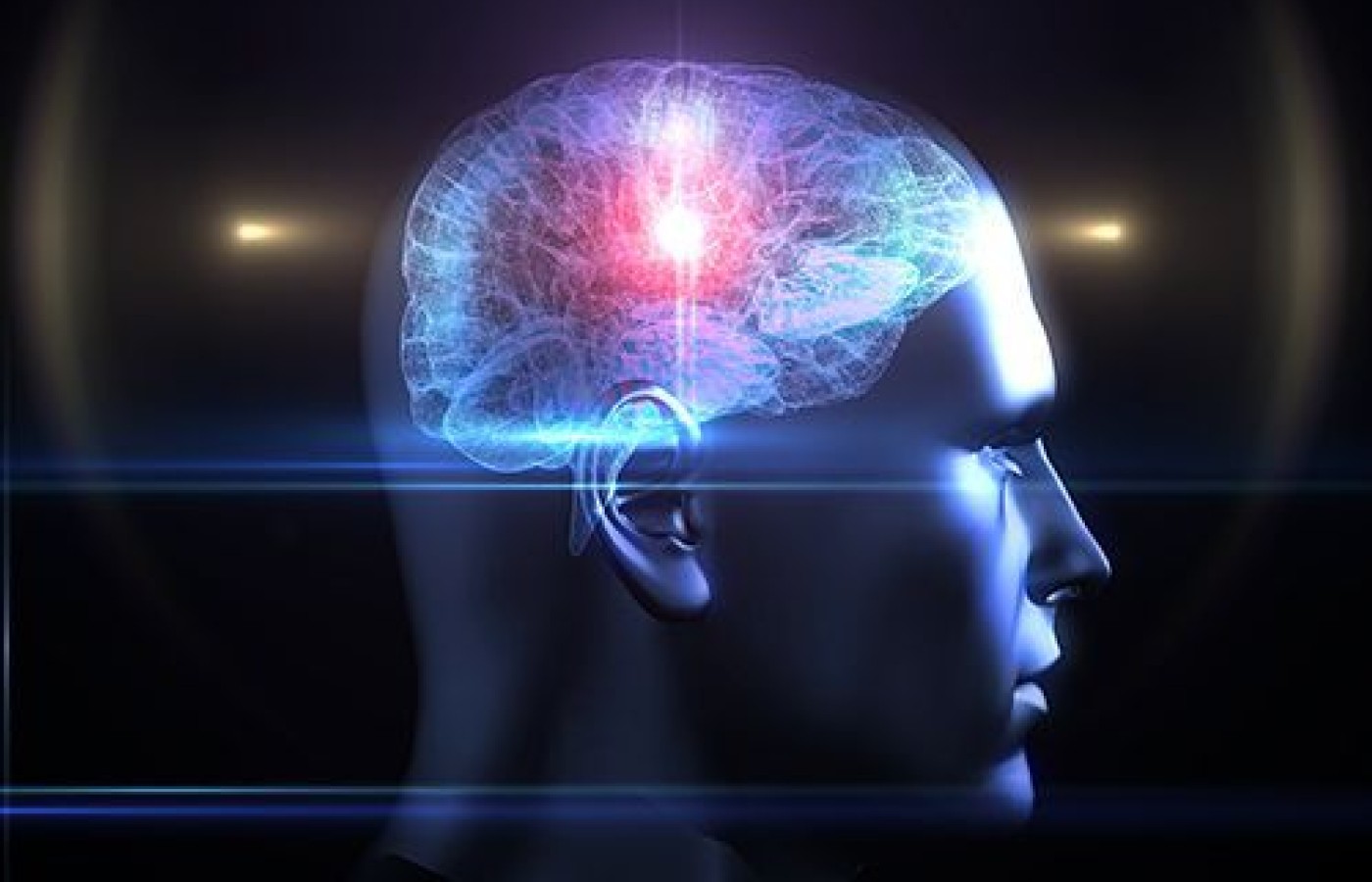It’s a new year and many chiropractors are evaluating what will enhance their respective practices, particularly as it relates to their bottom line. One of the most common questions I get is: “Do I need to be credentialed to bill insurance, and what are the best plans to join?” It’s a loaded question – but one every DC ponders. Whether you're already in-network or pondering whether to join, here's what you need to know.
Is It Time to Rethink Mental Illness? (Pt. 1)
Invariably, patients will ask their chiropractor about depression or various mental illnesses. Some practitioners will reflexively offer a cervical adjustment, suggest St. John's wort or contemplate a referral to a specialist. While these common recommendations may be appropriate depending on the patient, there may be more that can be done – but it takes a different way of thinking about mental illness.
Flawed Diagnostic Criteria?
It has been said that the difference between neurology and psychiatry is psychiatric disease does not have a demonstrable pathology; if it does, its ceases to be a psychiatric disease and instead becomes a neurological one.1 For example, when certain types of dementia were discovered to be caused by syphilis, they ceased to be psychiatric diseases and instead became neurological / venereal ones.
In comparison to cancer and diabetes, psychiatric diseases lack consistent demonstrable pathophysiology. Moreover, psychiatric illnesses such as depression, attention-deficit disorder (ADD), attention-deficit / hyperactivity disorder (ADHD), bipolar disorder, and schizophrenia have no known etiology. There are theories involving chemical imbalances and genetic culpability, but nothing substantive.
Worst of all, many psychiatric diseases cannot be found with objective measures such as an MRI, blood test, urine analysis, X-ray, or orthopedic examination. Diagnosis depends primarily upon a subjective evaluation and an empirical trial of pharmaceuticals.

Psychiatrist, professor emeritus of Duke University's department of psychiatry, and former chair of the DSM IV task force, Dr. Allen Frances, concurs, admitting psychiatric diagnosis rely "exclusively on fallible subjective judgments, [and] not on objective biological tests."2
Although he believes one day science will be able to locate these alleged brain diseases, Dr. Frances is against the trend in psychiatry to medicalize normal behavior despite the strong financial incentive to do so.2
Pointing out flaws in psychiatric diagnoses is nothing new; it has been a scandal since the beginning. One of the more colorful examples was provided in the 1970s by Rosenhan in a study demonstrating the unreliable and subjective nature of psychiatric diagnosis for mental commitment.3
In a similar manner, psychiatrist and professor emeritus Thomas Szasz observed:4
"The claim that 'mental illnesses are diagnosable disorders of the brain' is not based on scientific research; it is a lie, an error, or a naïve revival of the somatic premise of the long-discredited humoral theory of disease. My claim that mental illnesses are fictitious illnesses is also not based on scientific research; it rests on the materialist-scientific definition of illness as a pathological alteration of cells, tissues, and organs. If we accept this scientific definition of disease, then it follows that mental illness is a metaphor, and that asserting that view is stating an analytic truth, not subject to empirical falsification."
ADHD Diagnoses and the Role of Big Pharma
Szasz is not alone. Jerome Kagan, who ranks 22nd (ahead of both Carl Jung and Ivan Pavlov) on a list of the top 100 psychologists from the modern era, believes psychiatric diagnoses such as ADHD are more of a pharmaceutical industry creation than pathophysiological diseases.
In an interview before his death, he said he believed the increasing rates of mental illness were due to "fuzzy diagnostic practices."5 Therefore, years ago, when a child was bored and disruptive in class, he was "called lazy," but now is labeled as having a mental illness.5
ADHD "is an invention," according to Kagan, and now, when children are sent to a physician for behavioral problems, they are given a drug. Nevertheless, none of these children is sick. At least 90 percent do not have an "abnormal dopamine metabolism." The real problem is "if a drug is available to doctors, they'll make the corresponding diagnosis."5
In other words, the rise in diagnosed mental illnesses has more to do with the drugs available and profit than the existence of disease.
Researchers, examining the chemical imbalance theory in 2005, marshaled strong evidence from psychiatrists and the medical literature demonstrating that the theory of depression being caused by fluctuations in neurotransmitter levels was spurious at best.6
In the same vein, science writer John Horgan, after investigating the neurotransmitter serotonin, penned: "Given the ubiquity of a neurotransmitter such as serotonin and the multiplicity of its functions, it is almost as meaningless to implicate it in depression as it is to implicate blood."7
Treating Depression: Why Drugs Aren't the Answer
If the chemical imbalance theory were true, the drugs given to correct the imbalance should demonstrate clear efficacy. In fact, evidence shows not only are these drugs largely ineffective, but they're also dangerous.
Peter Gøtzche, director of the Nordic Cochrane Centre and professor of clinical research design and analysis at the University of Copenhagen, concluded: "[I] believe that SSRIs should never be used in children and adolescents. It makes no sense to use drugs that double the risk of suicide when what we want more than anything else is to reduce the suicide risk in depressed children and adolescents."8
Additionally, he penned: "SSRIs are very poor drugs and I doubt they are safe at any age. The first SSRI was fluoxetine, which the German drug regulator deemed ‘totally unsuitable for the treatment of depression' ... SSRIs have been shown to have minimal or nonexistent benefit in patients with mild or moderate depression and I think they might not even work for severe depression."9
Even the drug-friendly Journal of the American Medical Association concluded in a 2010 article that for most cases of depression, selective serotonin reuptake inhibitors (SSRIs) are no more efficacious than placebo.10
Kirsh, et al., analyzing both published and unpublished data concerning depression drugs, noted that "the overall effect of new generation antidepressant medications is below recommended criteria for clinical significance."11
Unfortunately, even those in the natural health industry have joined the chemical imbalance bandwagon, hoping to "crack the code." This does not preclude the use of specific nutrients and herbs to help patients recover, but both herbs and nutrients operate upon numerous pathways and can affect a number of systems in the human body.
A New Way of Thinking
Instead of attempting to balance an imbalance that may not exist, clinicians ought to consider the patient as a whole and look at other factors which lead to an undesirable symptom profile.
As practitioners, we do not want to deny our patients' feelings or ignore clinical behavior, nor do we want to classify poor behavior and negative feelings into a disease. Rather, it might be better to consider these symptoms as part of a genuine pathology.
For instance, a study published in the Journal of Neuroinflammation suggests systemic inflammation, such as seen in autoimmune disease, may be the cause of symptoms found under the classification of schizophrenia and depression.12
The authors lament that treatment of an actual identifiable autoimmune disease is often delayed because physicians simply believe the visible symptom pattern was the result of neurotransmitter imbalance or organic brain disease.
References
- Wyatt RC. "Thomas Szasz on Freedom and Psychotherapy." Psychotherapy.net, December 2000.
- Allen F. The past, present and future of psychiatric diagnosis. World Psychiatry, 2013 Jun;12(2):111-112.
- Rosenhan DL. "On Being Sane in Insane Places." Science, 1973;179(4070):250-258. In this study, Rosenhan submitted pseudo patients to psychiatric hospitals with the complaint of hearing voices but in every other aspect acting normal. The goal was to see if mental health experts could identify the false patients. In all cases, the faking patients were admitted, labeled as schizophrenic, and given drugs. Despite on average of 19 days of incarceration, neither the psychiatrist nor the staff detected the confederate patients. Later on, when the results were announced that a psychiatrist failed to detect the confederate patients, a group of psychiatrists at another teaching hospital submitted to the challenge of detecting false patients. For the next three months, both mental health experts at the teaching hospital scrutinized each patient, looking for confederates. At the end of three months, they pointed to over 40 patients they suspected as being fictitious. Unfortunately for the hospital, not one confederate patient was sent. Rosenhan demonstrated just how weak psychiatric diagnostic perception is and just how subject it is to bias.
- Szasz TS. The Myth of Mental Illness: Foundations of a Theory of Personal Conduct. Harper Perennial, 2010. Preface IX,
- Spiegel interview with Jerome Kagan: "What About Tutoring Instead of Pills?" Spiegel Online, Aug. 8, 2012.
- Lacasse JR, Leo J. Serotonin and depression: a disconnect between the advertisements and the scientific literature. PLoS Medicine, 2005 Dec;2(12):e392.
- Horgan J. The Undiscovered Mind: How the Human Brain Defies Replication, Medication, and Explanation. New York: Free Press, 1999.
- Letter from Peter Gøtzche to Professor Isometsa, Sept. 5, 2014.
- Gøtzche P. "Why I Think Antidepressants Cause More Harm Than Good." Lancet Psychiatry, 2014;1:104-6.
- Fournier JC, et. al. Antidepressant drug effects and depression severity. JAMA, 2010;303(1):47-53.
- Kirsch I, et al. Initial severity and antidepressant benefits: a meta-analysis of date submitted to the Food and Drug Administration. PLoS Medicine, February 2008;5(2):e45.
- Najjar S, et al. Neuroinflammation and psychiatric illness. J Neuroinflammation, 2013;10:43.
Editor's Note: Dr. Perenich continues his discussion in part 2 of this article (June issue).



